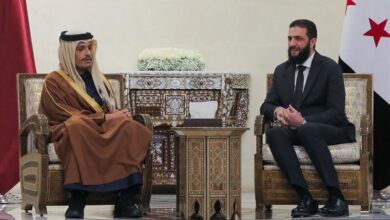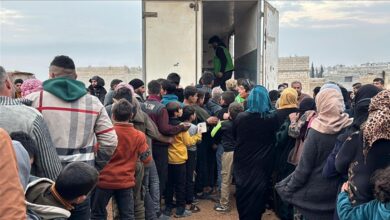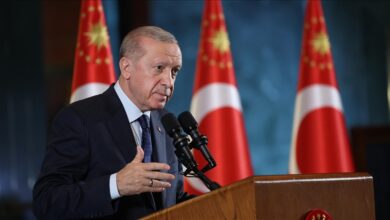
A human rights organization: Attacks against schools in northwestern Syria continue despite the ceasefire
A human rights organization has warned that attacks on schools in northwestern Syria are still continuing, after a ceasefire was agreed there since March 2020.
Save the Children (a British non-governmental human rights organization) said in a report published on Thursday that, since the beginning of the year 2020 until now, in cooperation with the “Guardians Network” (a local Syrian based in Turkey), it has documented 37 attacks on educational facilities in northwestern Syria Of these, 9 occurred after the ceasefire was declared in March of last year.
The report indicated that those attacks resulted in the killing of at least four children and four school employees, and it is likely that the actual number of deaths will be higher than the mentioned number, in addition to school facilities being destroyed and the education of many children disrupted.
“Save the Children” indicated that at least three attacks targeted schools in northwestern Syria, which resulted in the destruction or of school buildings, leaving children without a place to go for their education.
The report quoted the director of the “Save the Children” branch in Syria, Sonia Kush, as saying: “It is heartbreaking that we see children still victims of the Syrian conflict and are paying the highest price for this conflict.”
“Schools should be safe havens for children, not war zones,” Kush added. It is appalling that the conflict continues to kill children and families across Syria, despite the ceasefire declared in March 2020, stressing that “these are grave violations against innocent individuals and they must be ended.”
In the conclusion of the report, Save the Children called on what it called “all parties to the conflict” to “respect international humanitarian law, ratify the declaration of schools as safe areas, avoid targeting schools and civilian infrastructure, as well as ensure the safety and protection of children.”
The northwestern regions of Syria (Idlib, the western countryside of Aleppo, the countryside of Hama and northern Latakia) are subject to several ceasefire agreements, starting with its entry into the “de-escalation agreement” within the Astana talks in May 2017, the last of which was the signatures of the Turkish and Russian presidents in Moscow on March 5 of last year.




